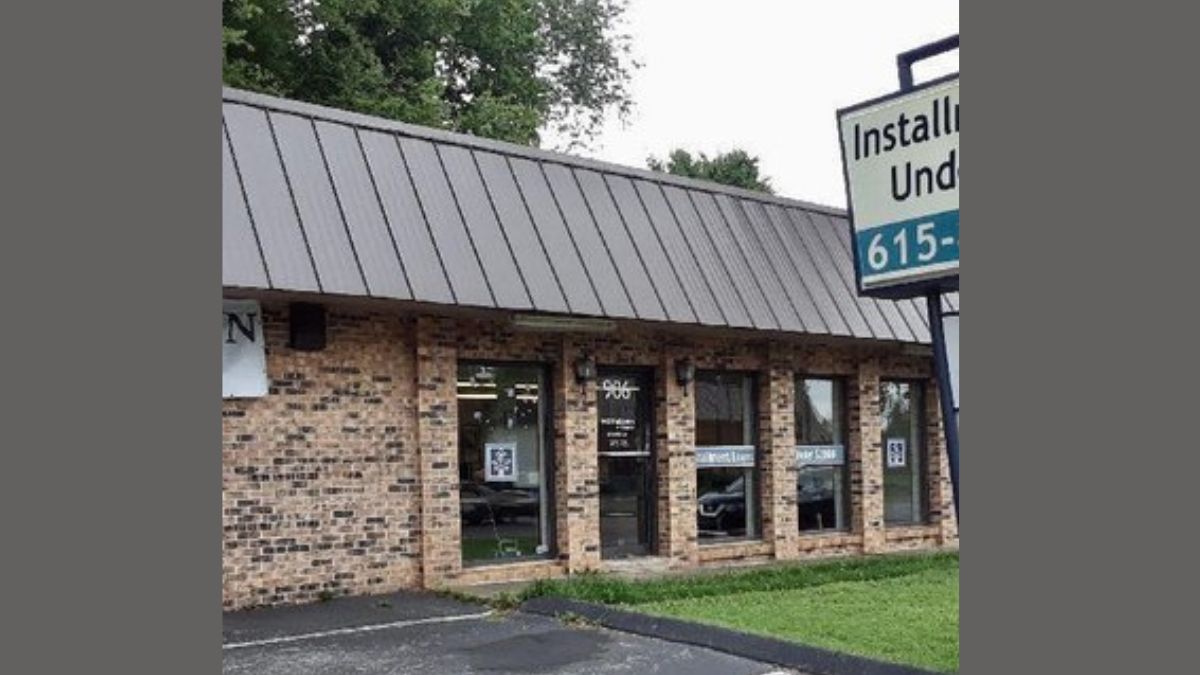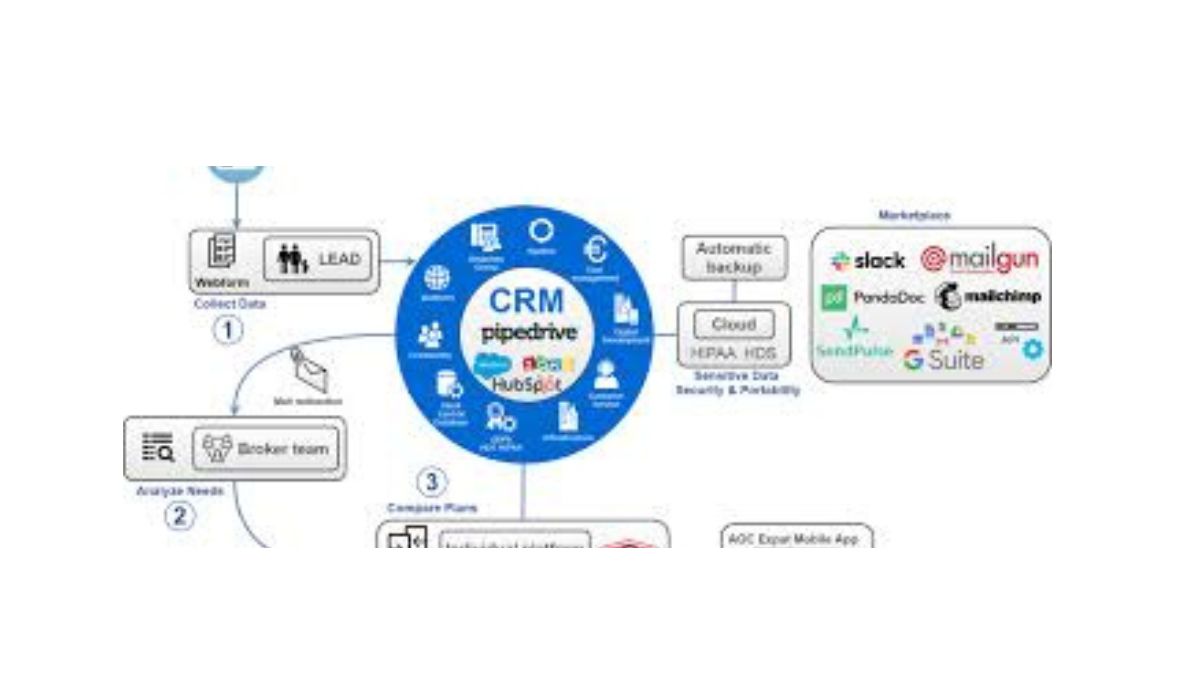FINANCE
Sure! Here are seven engaging blog post titles related to “hometown finance

Welcome to the world of hometown finance, where your local economy shapes not just how you spend but also how you save. Understanding the financial landscape of your community is more than just knowing which bank offers better rates; it’s about recognizing the unique opportunities and challenges that come with living in your town. Every dollar spent at a local shop or invested in a neighborhood project can make a difference, creating a ripple effect that benefits everyone. Whether you’re looking to tighten your budget, explore banking options, or invest in community growth, this guide will provide valuable insights tailored for those who call their hometown home. Let’s dive into practical tips and resources that empower you to take charge of your financial journey right where you live!
The Importance of Understanding Your Hometown’s Financial Landscape
Understanding your hometown’s financial landscape is essential for making informed decisions. Every community has its own economic nuances that can significantly impact your finances.
Local job markets, property values, and cost of living vary widely across towns. By grasping these elements, you position yourself to take advantage of opportunities—like securing a great mortgage rate or finding a solid job.
Moreover, knowing the types of businesses in your area helps you support local economies. This not only strengthens community ties but also fosters an environment where small businesses thrive.
Additionally, awareness of local taxes and fees can save you money in unexpected ways. You might discover tax breaks specific to residents that could lighten your financial load.
Being financially literate about your hometown empowers you to navigate life’s challenges with confidence and clarity.
How to Save Money in Your Hometown: Tips and Tricks
Saving money in your hometown can be easier than you think. Start by exploring local discounts and promotions offered by businesses. Many shops provide loyalty programs that reward frequent customers.
Consider dining at local eateries during happy hours or special discount days. You’ll not only enjoy delicious meals but also save significantly on your bills.
Utilizing community resources is another smart move. Libraries often host free events, workshops, and even offer access to digital content without the cost of a subscription.
Shopping at farmers’ markets can yield fresh produce at lower prices compared to supermarkets. Plus, you’ll support local farmers while eating healthy.
Don’t forget about using public transportation when possible. It’s an excellent way to cut gas expenses and reduce wear on your vehicle while connecting with your neighborhood more intimately.
The Hidden Gems of Hometown Banking: Exploring Local Options
When it comes to hometown finance, local banks and credit unions often fly under the radar. These institutions can offer personalized services that larger corporations can’t match.
Local banks typically understand community needs better. They often provide tailored loan options for residents looking to buy homes or start businesses. Plus, their interest rates may be more competitive since they focus on fostering local growth.
Credit unions are another fantastic option. As member-owned entities, they prioritize customer satisfaction over profit margins. This means you might find lower fees and higher savings rates than at traditional banks.
Exploring these hidden gems not only benefits you but also strengthens your community by keeping financial resources close to home. Building relationships with local bankers can lead to valuable insights into managing your finances effectively while supporting your hometown economy in the process.
Making the Most of Homeownership: Financial Considerations for Your Hometown
Homeownership is a significant milestone, especially in your hometown. It’s not just about having a place to live; it’s also an investment in your community.
Start by exploring local property values. Understanding the market can guide you on when to buy or sell. Don’t overlook neighborhood trends that could affect your home’s worth over time.
Consider tax advantages too. Many areas offer incentives for homeowners that could lighten your financial load. Research available programs and check eligibility requirements.
Maintenance costs can add up quickly, so budgeting for repairs is essential. Regular upkeep prevents small issues from becoming costly disasters.
Think about how your home fits into the broader picture of hometown finance. Is it close to amenities? Does it support local businesses? These factors enhance both lifestyle and investment value while fostering community ties.
Investing in Your Community: Supporting Local Businesses and Economy
Investing in your community is more than just a financial decision; it’s about fostering connections. When you support local businesses, you’re helping to create jobs and stimulate economic growth right where you live.
Shopping at neighborhood stores often means that money stays within the community. This contributes to funding schools, parks, and infrastructure improvements that benefit everyone.
Local entrepreneurs bring unique products and services to the table. By choosing them over big-box retailers, you’re encouraging creativity and innovation in your hometown.
Moreover, supporting these businesses strengthens relationships among residents. It builds a sense of pride and belonging as neighbors come together for events or simply while shopping.
Consider how local investments can lead to sustainable practices. Many small businesses prioritize ethical sourcing and environmentally friendly practices that large corporations may overlook. Your choices can drive positive change in both economy and culture.
Navigating Hometown Retirement Options: What You Need to Know
Retirement planning can feel daunting, especially when considering your hometown options. Understanding local retirement plans and resources is crucial for a secure future.
Start by exploring community programs designed specifically for seniors. Many towns offer workshops that provide financial education tailored to retirees. These sessions can be invaluable in helping you manage savings effectively.
Don’t overlook local investment opportunities either. Credit unions or community banks often have personalized services that cater to retirees, along with lower fees compared to larger institutions.
Additionally, consider the cost of living in your hometown. It plays a significant role in how far your retirement funds will stretch. Local property taxes, healthcare expenses, and available amenities all factor into your financial landscape as you transition into this new life stage.
Taking advantage of these resources empowers you to make informed decisions about securing a comfortable retirement right where you are.
Budget-Friendly Activities in Your Hometown: Enjoying
When it comes to enjoying your hometown without breaking the bank, there are plenty of budget-friendly activities to explore. Many communities offer free or low-cost events throughout the year. Check local calendars for festivals, farmers’ markets, and outdoor concerts that you can attend with family and friends.
Don’t forget about the beauty of nature! Local parks often provide walking trails, picnic areas, and playgrounds where you can spend quality time outside. Consider organizing a community game day at a park—bring along some sports equipment like frisbees or soccer balls for an afternoon filled with fun.
Art walks and gallery openings are also excellent ways to engage with your hometown’s creative scene while supporting local artists. These events often feature free entry and refreshments.
Volunteering is another fulfilling way to enjoy what your hometown has to offer while giving back. Join community service projects that might include cleaning up parks or helping out at local shelters.
Exploring new restaurants may seem pricey but look out for happy hour specials or food trucks that serve delicious meals at affordable prices.
With just a little creativity, you can uncover numerous enjoyable experiences in your own backyard—all while keeping costs down and appreciating what makes your hometown unique.
FINANCE
Step-by-Step Guide to Makwa Finance Log In: Access Your Account with Ease

Navigating the world of finances can feel daunting, but with Makwa Finance Log In, managing your money has never been easier. Whether you’re looking to budget better or access loans and investment opportunities, having an account with Makwa Finance opens up a realm of possibilities tailored just for you. This guide will help you understand everything from creating your account to logging in smoothly. Say goodbye to confusion and hello to financial empowerment! Let’s embark on this journey together and make the most out of your Makwa Finance experience.
Benefits of Having a Makwa Finance Account
Having a Makwa Finance account opens the door to numerous financial advantages. One of the primary benefits is access to personalized financial services tailored to your needs.
With competitive interest rates, you can maximize your savings and make informed investment choices. This flexibility empowers you to manage your finances more effectively.
Additionally, Makwa Finance offers user-friendly digital tools for easy tracking of expenses and investments. These features simplify budgeting and help you achieve your financial goals with less effort.
The platform also promotes secure transactions, ensuring peace of mind while managing your funds online. Whether you’re paying bills or transferring money, security is a top priority.
Customer support is another significant perk. Expert assistance is just a click away if you encounter any issues or need guidance on navigating the platform’s features.
How to Create a Makwa Finance Account
Creating a Makwa Finance account is straightforward. Start by visiting the official website. Look for the “Sign Up” or “Register” button, usually located at the top right corner.
Click on it to open the registration form. You’ll need to provide basic information like your name, email address, and phone number. Make sure all details are accurate to avoid issues later.
Next, create a strong password that combines letters, numbers, and special characters. This enhances your account security significantly.
After filling in your information, read through any terms of service or privacy policies provided. It’s essential to understand what you’re agreeing to before proceeding.
Once you’ve completed these steps, click on the “Create Account” button. A verification email will be sent to you shortly; check your inbox and follow the prompts in that message to activate your new account.
Step-by-Step Guide to Logging In
To start the Makwa Finance log in process, visit their official website. Look for the login button prominently displayed on the homepage.
Click it to be directed to the login page. Here, you’ll see fields requesting your username and password.
Enter your credentials carefully. Make sure there are no typos; even a small mistake can prevent access to your account.
Once you’ve entered your information, hit the “Log In” button. This will take you directly into your account dashboard if everything is correct.
If you’re using a shared device, consider unchecking any boxes that save your details for future use. Your security is paramount when managing finances online!
Troubleshooting Common Login Issues
Experiencing issues with your Makwa Finance log in can be frustrating. Fortunately, many common problems have straightforward solutions.
Double-check your username and password. A simple typo can prevent access. If you’ve forgotten your password, use the “Forgot Password?” link to reset it easily.
Another issue could be browser-related. Clear the cache and cookies on your web browser or try using a different one altogether. Sometimes, outdated browsers cause hiccups in functionality.
If you’re still having trouble, ensure that your internet connection is stable. Weak connectivity can interrupt the login process.
Check if there are any known service outages on Makwa Finance’s website or social media pages. Staying informed helps ease concerns about technical difficulties affecting multiple users at once.
Managing Your Account: Features and Functions
Once you log in to your Makwa Finance account, a world of features awaits. The user-friendly dashboard allows for easy navigation, making it simple to manage your finances.
You can track your transactions effortlessly. View detailed statements and categorize expenses to gain insights into your spending habits. This level of visibility helps you make informed financial decisions.
Setting up alerts is another valuable feature. Receive notifications about due dates or low balances straight to your phone or email. Staying on top of these details can prevent unnecessary fees.
Additionally, the platform offers budgeting tools that empower users to set goals and monitor progress over time. Whether you’re saving for a trip or planning major purchases, having this functionality at your fingertips makes all the difference.
Don’t forget about security options either; two-factor authentication keeps your account safe while giving you peace of mind as you manage funds online.
Conclusion
When it comes to managing your finances, having a Makwa Finance account can be a game changer. The intuitive platform offers numerous benefits and features designed to simplify your financial transactions. By following the step-by-step guide provided, accessing your account is straightforward and hassle-free.
If you encounter any issues during the Makwa Finance log in process, the troubleshooting tips will help you resolve them quickly. Plus, understanding how to manage your account efficiently ensures that you’re making the most of all available functionalities.
Taking control of your financial journey starts with knowing how to access and utilize tools like Makwa Finance effectively.
FINANCE
Unlocking Financial Insights: A Deep Dive into TheAPKNews.shop Finance

Managing your finances can often feel like navigating a maze. With so many options available, it’s easy to get lost in the intricacies of budgeting, investing, and planning for the future. Enter TheAPKNews.shop Finance—a game-changer designed to simplify your financial journey. This innovative platform offers tools that empower you to take control of your money with confidence.
What if you could unlock personalized insights tailored just for you? Imagine having access to features that not only track your spending but also provide recommendations based on your unique financial situation. Whether you’re looking to save more or invest wisely, TheAPKNews.shop Finance is here to help transform how you view and manage your finances.
Let’s dive deeper into what makes this platform stand out and how it can revolutionize your approach to financial health.
Features of TheAPKNews.shop Finance
TheAPKNews.shop Finance is packed with features designed to enhance your financial management experience. Its user-friendly interface makes navigation a breeze, allowing you to effortlessly track your expenses and income.
One standout feature is the real-time budgeting tool. This allows users to set budgets for various categories and receive instant alerts when nearing their limits.
Another impressive aspect is the analytics dashboard, which provides visual representations of your financial data. It helps identify spending patterns and trends over time.
Additionally, TheAPKNews.shop Finance offers goal-setting capabilities. Users can easily create savings goals and monitor progress, making it simpler to achieve financial objectives.
For those concerned about security, robust encryption keeps personal information safe from potential threats while ensuring peace of mind as you manage finances effectively.
How TheAPKNews.shop Finance Can Benefit Your Financial Life
TheAPKNews.shop Finance offers a suite of tools designed to enhance your financial management. Imagine having real-time tracking of your expenses and income at your fingertips. It simplifies the often overwhelming task of budgeting.
With its intuitive interface, you can easily categorize spending and identify patterns. This visibility helps you make informed decisions about where to cut back or invest more wisely.
Moreover, TheAPKNews.shop Finance empowers users with personalized insights based on their financial behavior. You receive tailored recommendations that resonate with your unique situation.
This level of customization allows for proactive planning rather than reactive solutions. By anticipating future needs, you can set realistic goals and achieve them efficiently.
Whether you’re saving for a vacation or managing debt, this platform puts the power in your hands to take control of your finances effectively.
Personalized Financial Insights and Recommendations
TheAPKNews.shop Finance stands out with its focus on personalized financial insights. Users gain access to tailored recommendations that align closely with their unique financial situations.
By analyzing spending habits and income patterns, the platform provides actionable advice designed for real-life applications. Whether it’s saving for a vacation or planning long-term investments, these insights feel relevant and practical.
Moreover, TheAPKNews.shop Finance employs advanced algorithms that adapt over time. As users input more data, the recommendations become sharper and more useful. This dynamic approach ensures individuals are always equipped with up-to-date guidance.
Additionally, users can set specific goals within the app. The system then crafts strategies to help achieve those objectives efficiently. Personalized support transforms generic advice into meaningful action steps tailored specifically for each user’s journey through finance management.
Comparison with Other Financial Management Tools
When evaluating TheAPKNews.shop Finance against other financial management tools, distinct advantages emerge. Many platforms offer basic budgeting features, but TheAPKNews.shop Finance provides advanced analytics that set it apart.
While competitors may focus solely on expense tracking, this tool integrates investment insights and savings strategies tailored to individual needs. Users can access real-time market data alongside their personal finance metrics.
Additionally, the user interface is designed for simplicity without sacrificing functionality. Unlike some complex alternatives that overwhelm users with options, TheAPKNews.shop Finance emphasizes ease of use.
Another key factor is customer support. While many services limit assistance to chatbots or emails, TheAPKNews.shop Finance prioritizes personalized help through dedicated service teams who understand user concerns directly.
These factors combined make it an appealing choice for anyone serious about managing their finances effectively while enjoying a seamless experience.
User Testimonials and Success Stories
Users of TheAPKNews.shop Finance have shared their transformative experiences. One user, Sarah, found clarity in her budgeting for the first time. She was amazed at how easily she could track her expenses and savings goals.
Another testimonial came from Mark, who appreciated the personalized insights. He highlighted that these tailored recommendations helped him invest wisely and grow his portfolio significantly.
Then there’s Lisa, a small business owner. She credits TheAPKNews.shop Finance with streamlining her financial management process. With its intuitive interface, she can now focus more on expanding her business rather than stressing over numbers.
These stories reflect just a few of the many successes experienced by users everywhere. Each story showcases how TheAPKNews.shop Finance is not just a tool; it’s an ally in achieving financial well-being.
Conclusion:
Empowering your financial journey starts with the right tools. TheAPKNews.shop Finance offers a unique blend of personalized insights and user-friendly features designed to enhance your financial well-being. With its robust capabilities, this platform stands out among competitors, providing tailored recommendations that can adapt as your life changes.
User testimonials highlight transformative experiences, showcasing how individuals have taken control of their finances. By utilizing TheAPKNews.shop Finance, many have reported improved budgeting practices and greater awareness of spending habits.
Investing time in understanding this tool could be the key to unlocking new opportunities for financial growth. Whether you’re just starting or looking to refine existing strategies, TheAPKNews.shop Finance has something valuable to offer everyone aiming for fiscal empowerment. Embrace the chance to elevate your financial future today.
FINANCE
Unlock Comfort: Discover No Credit Check HVAC Financing Near me

When the temperature soars or plummets, having a reliable HVAC system is essential for your comfort. However, not everyone has the financial flexibility to cover unexpected repairs or install a new heating and cooling system outright. Enter no credit check HVAC financing Near me—an accessible solution that can turn your home into a comfortable sanctuary without worrying about credit scores. Imagine enjoying optimal indoor temperatures year-round while keeping your budget intact. If you’re looking for ways to unlock this kind of comfort near you, read on to discover how no credit check financing options can make all the difference in creating the perfect climate at home.
What is HVAC financing and why is it important
HVAC financing refers to the various payment options available for purchasing or repairing heating, ventilation, and air conditioning systems. It allows homeowners to invest in essential home comfort solutions without the immediate financial burden.
This type of financing is crucial because HVAC systems can be significant investments. When your heater breaks down in winter or your air conditioner fails during a scorching summer day, quick access to funds can make all the difference.
Moreover, proper climate control contributes not just to comfort but also affects energy efficiency and indoor air quality. Investing in reliable HVAC systems ensures you maintain a healthy living environment while potentially lowering utility bills over time.
Having flexible financing options empowers homeowners by providing peace of mind when facing unexpected repairs or upgrades.
The benefits of no credit check HVAC financing
No credit check HVAC financing opens doors for many homeowners. It allows those with less-than-perfect credit to secure essential heating and cooling systems without the stress of traditional loan requirements.
Flexibility is a primary benefit. Homeowners can choose from various payment plans that fit their budgets, ensuring comfort doesn’t come at a financial burden.
Another advantage is speed. Without lengthy credit checks, approvals are often quicker, allowing you to address urgent HVAC needs right away.
Moreover, this type of financing provides peace of mind. Knowing that your application won’t be judged solely on past credit history means more people can invest in their home’s comfort.
It encourages energy-efficient upgrades. Many no-credit-check options focus on eco-friendly systems that save money long-term while enhancing home value.
How to find no credit check HVAC financing near me
Finding no credit check HVAC financing near you can be a straightforward process if you know where to look. Start by searching online for local HVAC companies that offer flexible financing options.
Use search engines and include keywords like “no credit check HVAC financing” along with your city or region. This helps narrow down your choices effectively.
Check customer reviews on platforms like Google, Yelp, or Facebook to gauge the experiences of others who have utilized these options.
Local contractor associations often have resources or directories that list reputable businesses offering such financing plans.
You might also want to reach out directly to companies via phone or email. Ask about their financing policies and whether they provide any special programs for those without established credit histories.
Understanding the application process
Applying for no credit check HVAC financing is typically a straightforward process. First, gather the necessary information about your income and employment details. This helps lenders evaluate your ability to repay.
Next, you’ll usually need to fill out an application form online or in person. Some companies allow for quick approvals while others may take a bit longer. Don’t worry; most of these applications are designed to be simple and user-friendly.
After submission, wait for a response regarding approval. Many lenders can provide instant feedback, so you won’t be left wondering for long.
If approved, review the terms carefully before signing any agreements. Understand your repayment schedule and interest rates clearly—knowledge is power when it comes to managing finances effectively!
Common misconceptions about HVAC financing without a credit check
Many people believe that no credit check HVAC financing options are only for those with poor credit. This isn’t true. These programs cater to a broader audience, including those who may not have an extensive credit history.
Another misconception is that these loans come with exorbitant interest rates or hidden fees. While some companies do charge higher rates, many reputable lenders offer transparent terms and affordable payments without surprises.
Some individuals also think that applying for financing means lengthy paperwork and waiting periods. In reality, many providers streamline the application process, making it quick and efficient.
There’s a belief that no credit check financing implies low-quality service or equipment. However, this isn’t the case; you can still access top-tier HVAC systems while enjoying flexible payment options tailored to your budget.
The top companies offering no credit check HVAC financing options
When seeking no credit check HVAC financing, several companies stand out for their flexible options and customer-friendly policies.
One prominent name is Wells Fargo, which offers tailored financing plans that cater to diverse needs without stringent credit checks. Their application process is straightforward, making it easy for homeowners to get started.
Another great option is GreenSky. They provide an array of funding alternatives specifically designed for home improvement projects like HVAC upgrades. Their quick approval times can be a game-changer during peak seasons.
Ferguson offers excellent financing solutions as well, partnering with various lenders who specialize in no credit check options. This allows customers to find the best rate suited to their financial situation.
Service Finance Company focuses on providing accessible financing with transparent terms and conditions—a key factor when choosing your HVAC provider.
Conclusion:
Taking the first step towards a comfortable home with no credit check HVAC financing Near me can significantly impact your quality of life. Imagine enjoying the perfect temperature year-round without worrying about financial barriers. Accessing reliable heating and cooling systems should not be limited by past credit history.
With various options available, finding no credit check HVAC financing near you is easier than ever. The flexibility in payment plans allows you to focus on what truly matters—your comfort at home.
By understanding the application process, debunking myths surrounding financing, and knowing which companies offer these valuable services, you’re well-equipped to make an informed decision. Embrace this opportunity for a more comfortable living environment while ensuring that financial constraints don’t hold you back from achieving it.
-

 FOOD10 months ago
FOOD10 months agoSure! Here are seven engaging blog post titles related to the concept of a “retail food product
-

 GENERAL9 months ago
GENERAL9 months agoTroubleshooting Common VRChat Login Issues: Tips and Tricks
-

 INSURANCE9 months ago
INSURANCE9 months agoNavigating the Future of Insurance with Technical Reserves in Flow Insurance
-

 TECH9 months ago
TECH9 months agoDiscover Reliable Abithelp Contact Solutions with JustAnswer
-

 FOOD10 months ago
FOOD10 months agoSure! Here are seven engaging blog post titles related to a “502 food blog
-

 GENERAL11 months ago
GENERAL11 months agoExploring the World of Erothots: What You Need to Know
-

 HEALTH10 months ago
HEALTH10 months agoMaine Health Jobs: A Comprehensive Guide
-

 TECH5 months ago
TECH5 months agoWhat You Need to Know About the 346 Area Code
